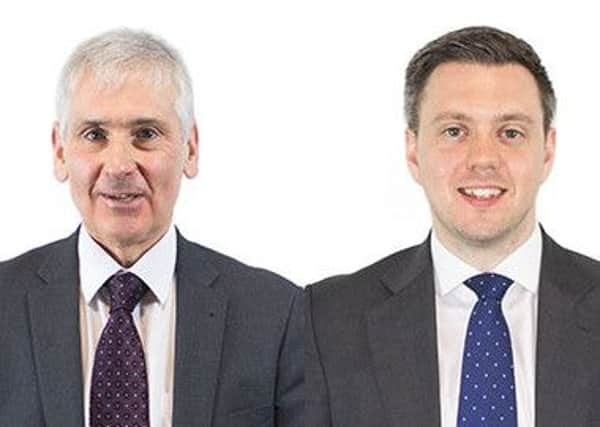David Kaye and Andrew Fraser: Franchising and the crowd


Nowadays it has become commonplace and we are starting to see a wide variety of would-be franchisors taking to crowdfunding platforms such as Crowdcube and Kickstarter to try to secure funding for their franchise development plans.
Franchising is an enticing method of growing your business, however the cost of franchising your business can often be prohibitive as most of the costs have to be paid before a franchisor recruits its first franchisee (and is able to start recovering its investment from franchise fees).
Advertisement
Hide AdAdvertisement
Hide AdBy way of example, the fees charged by franchise consultants, lawyers and other professionals in setting up the network and the cost of marketing and advertising franchise opportunities for sale all require to be paid in advance of any franchisees coming in to the business. Given this, would-be franchisors need to make sure they have this “development capital” in place to fund the set-up costs.
While banks (particularly those with designated franchising teams) have always been keen to stress their support for the franchising industry and are ready and willing to lend to many franchisees of established brands such as Domino’s Pizza or McDonald’s, we have noticed a reluctance since the recession to lend development capital to relatively new businesses seeking to franchise.
This has forced such businesses to look into more innovative ways of securing funding including crowdfunding. Whilst not a new concept, crowdfunding has seen significant growth in recent years thanks, in a large part, to increased internet accessibility and a significant increase in the number of platforms.
Crowdfunding utilises large groups of people (the “crowd”) to collect a significant number of small contributions which (when added together) makes a usable sum. Equity crowdfunding (where members of the crowd invest in return for a shareholding in the business) is the method most frequently used by start-up and early stage businesses and, as such, it fits well with businesses looking to franchise.
The advantage of the equity model are that funding can be raised quickly with limited upfront fees; presenting the franchise project via the crowdfunding website is useful marketing which can raise awareness of the brand and help recruit a franchisor’s first franchisee; and sharing the plans for franchising and monitoring any reaction or feedback is a great way of testing the potential market for franchisees.
Indeed, as a live case study, one of our clients, specialising in craft beers and ciders, successfully raised £107,130 on Crowdcube in May and hopes to use the funds to aid their expansion through franchising.
We predict that crowdfunding will increasingly be used as an alternative means of raising the development capital required to set up a franchise operation and, going forward, the establishment of new franchise brands will no longer be subject to the discretion of a bank.
David Kaye and Andrew Fraser, of Harper Macleod, act on behalf of franchisors and franchisees throughout the UK and internationally on all manner of franchising issues including setting up franchise networks, buying and selling franchised businesses and managing franchise disputes